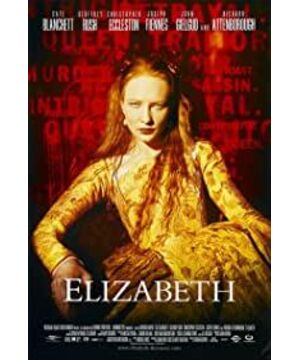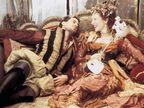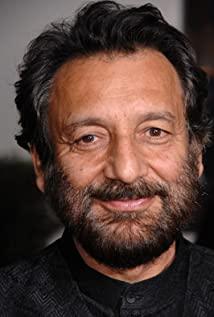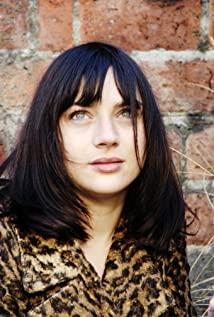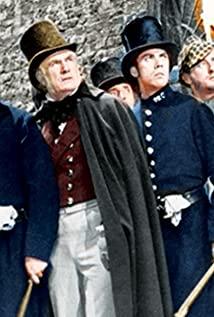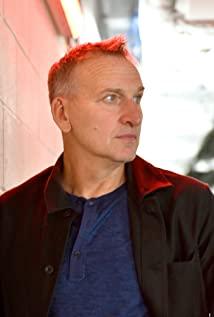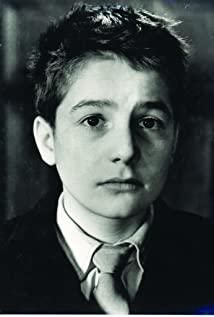Elizabeth I may be the most popular monarch in British history. She reigned for 44 years (1558-1603), turning Britain from a chaotic state of internal and external troubles into Europe's most powerful and wealthy country (one of). This period is also known as the "golden age". Her three major achievements—establishing the status of Protestantism (Anglican) as the state religion, defeating the Spanish Invincible Fleet, and maintaining domestic stability and cultural prosperity, have greatly enhanced the sense of national identity of the British and undoubtedly changed the trend of world history. It will be a matter of time before such a great character is made into a biographical film, but it is never easy to make a good one. This film mainly talks about some people and things in her early years of ascending the throne, which belongs to a typical Hollywood-style historical drama: making a story about historical facts, focusing on contradictions and conflicts, and focusing on expressing human nature and affection (especially love). The quality of the film itself has been nominated for many awards enough to explain, here is the history that I am more interested in.
About her predecessor and sister Mary I of England. I won't talk about the origin of the two of them. Next time I write a film review of "Henry VIII", I will introduce this wonderful king who has been married six times and changed his state religion as a result. The burning pagan at the opening of the film echoes the title of "Bloody Mary" (a blood-red cocktail is named after it), and it is also true that she imprisoned Elizabeth in the Tower of London for nearly a year. But she did not execute the half-sister after all, and the false pregnancy caused by wanting to get pregnant is also sympathetic. She is an unpopular queen in British history, but this has something to do with "people comparing her with Elizabeth".
About her lover Robert (Robert Dudley). The love between Elizabeth and Robert is a highlight of the film. From the childhood sweetheart before he came to the throne, to the throne at the beginning of the throne, sharing the same bed, to Robert's wife and family, and finally Robert participated in the rebellion of the Queen and cut off the love. The film implies that the two loved each other from beginning to end, but failed to unite due to misunderstanding or focusing on the overall situation. This is also Hollywood's usual routine (although the film is a British film). This is very good, but it does not match historical facts. First of all, Elizabeth has always known that Robert has a wife (this is not easy to hide), she does not mind; second, Robert did not participate in any rebellion, and has been reused by the Queen (later promoted to earl), before he died as the chief The commander participated in the famous Battle of Greifland. Robert and Elizabeth maintained a long-term affair, but they were not married after all (Robert's wife died unexpectedly very early).
Regarding her right arm, Francis Walsingham and William Cecil. Neither of them is as old as in the film. They all assisted the Queen for at least 30 years, until she died of illness, and they all worked hard. In fact, the glory of the Elizabethan era is due to her knowledge and good use, which is very similar to China's Tang Taizong. Walsingham is known as the master of spies, he has no particular sexual orientation, and he will do a lot in the sequel.
Regarding the issuance of the Act of Uniformity. This was the first thing Elizabeth did after coming to power. It was aimed at resolving the dispute between the Catholic and Protestant churches in Britain for decades, establishing the status of the Protestant church as the state church, and unifying the Church of England. Some bishops happened to be absent at the time of the vote. This is one of the reasons for the passage of the law. The decree made it obligatory to go to church on Sundays and strengthened the prestige of the "Prayer Book". The "Single Decree" is an important part of the Elizabethan Religious Settlement policy. Another bill promulgated at the same time made her the supreme ruler of the church.
About France and Spain. At that time, France was deeply mired in the quagmire of the war of religion (French Wars of Religion), while Spain relied on overseas colonization to establish a "empire that never sets in the sun." Elizabeth I was relatively conservative in foreign policy, neither taking advantage of others, nor joining forces. In the film, she rejected the marriage proposal of Henry III of France and Philip II of Spain. The former is a fiction (the younger brother of Henry III did), and the latter is a fact. Neither country directly participated in the conspiracy to overthrow the rule of the British king at least in the early period. In addition, although there are rumors that Henry III is homosexual, there is never a transvestism.
About Scotland. At that time, Queen Mary I of Scots (not to be confused with the aforementioned "Bloody Mary" of England) was the granddaughter of Elizabeth's aunt and had certain inheritance rights to the British throne. Because Mary I’s mother was a nobleman from France, Elizabeth has always worried that Mary would replace herself with the support of France. Her worries are not unreasonable, because there have been two aborted coups afterwards, both of which tried to push Mary I to the throne (Ridolfi plot and Babington Plot, the names come from the mastermind’s surname). Mary later came to Elizabeth due to a domestic aristocratic rebellion, but was placed under house arrest for 18 years and was finally executed after the second conspiracy was revealed (although Mary herself always insisted that she did not participate). At the end of the film, Walsingham's unraveling conspiracy to execute political opponents is based on these two incidents. However, the two original offenders did not appear, and Mary's mother was innocently implicated in it.
About the Pope Pius V. He expelled Elizabeth I from the church in 1570 with the crime of splitting the church (the law of breaking the door), so he naturally became a negative role. This led to the film being regarded as anti-Catholic, because Pius V was regarded as a saint in the church. There is currently no evidence that the Pope secretly issued an assassination order.
Regarding the queen's lifetime not to marry. There are divergent opinions on this issue. Some people say that she knows that she cannot have children. Some people say that she has sexual dysfunction. The real reason is probably only the queen knows. It is generally believed that she did not reject marriage at first, but she was hesitant for political considerations (marriage means alliance and decentralization); as a result, the later it became more difficult to choose, the more difficult it was to marry, the more difficult it was to give birth, and she and the ministers I also gradually accepted the status quo of being single (actually, it is a super "leftover girl"). She later called herself "virginity" and even became a virtue for a time. However, not many people believe that she is really a virgin, and the evidence shows that she has maintained an affair with several pets. The method of the movie is to bluntly talk about her sexual relationship with Robert, and after she was disappointed with love and men, she resolutely reduced her ambitions (made up) and "married to the country". This is a reasonable beautification.
The film was not welcomed at the Oscars, only one of the 7 nominations (best makeup); but returned to the UK to shine, 12 BAFTA nominations hit half. This film is the famous work of Australian actress Cate Blanchett. She has a good grasp of the mental journey of "From Girl to Queen", which is impressive. In the end, she and another classical beauty Gwyneth Paltrow ("Shakespeare in Love") were equally divided in three awards: Paltrow won the Oscar, Blancchett won the BAFTA, and the two won the Golden Globe. In addition, at the Oscars that year, Cate Blanchett and Judi Dench ("Shakespeare in Love") were nominated for an actor award for playing the same character (Elizabeth I). This was the only time in history.
It now appears that the film is a gathering of big names. Not to mention the Oscar actor like Geoffrey Rush, the chairman of the Royal Academy of Dramatic Art like Richard Attenborough, the popular niche like Joseph Fiennes (and also starred in the Oscar best picture of the year "Shakespeare in Love"), the future superstar like Daniel Craig , Others from the Pope (John Gielgud, Oscar Amy Grammy Tony winner of the "Four Grand Slams", this film is his posthumous work) to the maid (Emily Mortimer and Kelly Macdonald) are not idle generations. Don’t forget the famous Cantona. Only in the end most people died and retired. Only Blancchet and Rush were left. So these two Australians made a sequel in 2007, and then talked about the golden age behind Elizabeth.
View more about Elizabeth reviews


